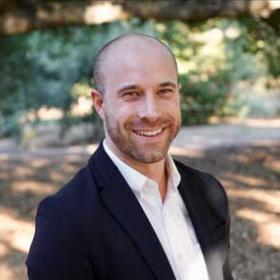
The New York Times Pays Tribute
The New York Times' Bruce Weber pays tribute to EastWest Institute founder John Edwin Mroz. Weber recounts Mroz's mandate from the Reagan administration to conduct private negotiations with P.L.O. leader Yasir Arafat, in 1981.
Read the full article here.
John Edwin Mroz, Who Held Secret Talks With Arafat for the Reagan Administration, Dies at 66
John Edwin Mroz, a consultant to governments in Europe, the Middle East and elsewhere who conducted secret talks with Yasir Arafat on behalf of the Reagan administration in 1981 in an unsuccessful effort to persuade the Palestine Liberation Organization to accept Israel’s right to exist, died on Aug. 15 in Manhattan. He was 66.
The cause was a combination of cancer and macrophage activation syndrome, a rare condition arising from complications of rheumatic disorders, his wife, Karen, said.
Mr. Mroz (rhymes with froze) was a co-founder and the chief executive of the EastWest Institute, a nonprofit research and policy group based in New York that for more than three decades has specialized in conflict resolution on an international scale.
In 1981, he was the 33-year-old director of Middle East studies at the International Peace Academy, an organization affiliated with the United Nations that trained civilians and military personnel in negotiating and peacekeeping skills.
In August of that year, Mr. Mroz received a memorandum from the P.L.O., reportedly at the instigation of Arafat, its chairman, suggesting the possibility that the organization was ready to negotiate on acknowledging Israel as a state in exchange for official recognition by the United States.
Understanding that such talks could bridge crucial divides between the Palestinians and Israel and between the Palestinians and the United States, Mr. Mroz contacted the State Department and was authorized to meet secretly with Arafat by Secretary of State Alexander M. Haig Jr.
Over the next nine months, Mr. Mroz traveled frequently to Beirut, where the P.L.O. had it headquarters, meeting with Arafat 50 or more times. In May 1982, according to The New York Times, the P.L.O. said it would make its decision on a plan for mutual recognition the following month.
On June 6, however, Israel invaded Lebanon, expelling the P.L.O., and the talks ended. Later that year, Mr. Mroz was authorized by Mr. Haig’s successor, George P. Shultz, to resume the mission, and he traveled several times to Tunisia, where the P.L.O. had relocated, but Arafat refused to see him.
Beginning in 1975, United States policy toward the P.L.O. had been predicated on a promise to Israel that it would not recognize or negotiate with the group until it acknowledged Israel’s right to exist and accepted certain resolutions of the United Nations Security Council.
Mr. Mroz’s mission was not revealed publicly for almost two years after his last meeting with Arafat. In February 1984, after The Times published an account of the clandestine talks, the White House said they had been conducted under the auspices of the State Department without its knowledge.
Mr. Shultz said he had examined the records of the meetings and defended them, saying that the 1975 policy statement did not preclude the United States from negotiating with the P.L.O. on behalf of American interests, and that the talks were similar to those carried out during the Carter administration through another intermediary, the Saudi foreign minister Prince Saud al-Faisal.
“What they talked about in private was identical to what was talked about in public,” Mr. Shultz said. “If it proved anything, it was that the constant refrain — that if only we would sit down with the P.L.O. and talk with them, everything would start falling in place — is simply not the case.”
Israel and the P.L.O. formally recognized each other in 1993.
Born in Lowell, Mass., on May 1, 1948, Mr. Mroz grew up in nearby Westfield, where his father was a dentist. He went to the University of Notre Dame and did graduate work at Northeastern University and the Fletcher School of Law and Diplomacy at Tufts. He was the author of “Beyond Security: Private Perceptions Among Arabs and Israelis,” a 1980 book that examined the persistence of the Israeli-Palestinian dispute.
In 1981, with Ira D. Wallach, Mr. Mroz founded the Institute for East-West Security Studies, which addressed Cold War conflicts. After the fall of the Berlin Wall and the dissolution of the Soviet Union, the institute changed its name to the EastWest Institute and widened its focus, consulting with European governments on the reunification of Germany and other post-Communist challenges.
Mr. Mroz broadened the institute’s reach further to include China and Central Asia. In recent years, for example, it brought together American and Russian experts to discuss common concerns, including narcotics trafficking and cybersecurity, and convened meetings between members of the Democratic and Republican National Committees and members of the Chinese Communist Party.
Mr. Mroz married the former Karen Linehan in 1972. In addition to her, he is survived by two sons, Jonathan and Jeffrey; a daughter, Jessica Mroz Stewart; two brothers, Thomas and Robert; and a granddaughter.
When Mr. Mroz began his meetings with Arafat, he traveled to Lebanon and Tunisia in the guise of his role with the International Peace Academy. He was not paid by the government. Asked in 1984 why he had volunteered for the job, he said: “If I could get Arab recognition of Israel, there’s nothing I could do that would be more important in my life.”

